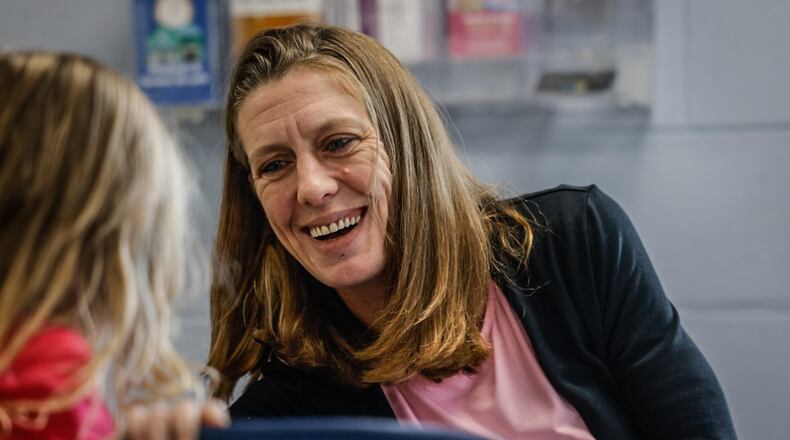“I like helping people. I like trying to make a difference. I like putting smiles on their faces,” Fecke said.
Sometimes the support she offers is social and emotional, as social isolation and loneliness can lead to health complications. Social isolation can increase risks of getting dementia by 50%, heart disease by 29%, and stroke by 32%, the Centers for Disease Control says.
Other times, Fecke helps people find secure housing, help with bills, and/or help getting of a bad situation. Navigating the social services that are available to people can be difficult, particularly if an individual has a chronic condition, mental illness, or other impediment to finding their way through that system, so Fecke helps people through that process.
“There are limited bills that we can help pay, but what we can’t help pay, I find someone who can help pay. I help them find washers, dryers, furniture, just about everything. Whatever it takes to meet their basic daily needs,” Fecke said. “I’ve helped some of them get into school actually, find jobs. There’s a lot of different possibilities.”
Credit: JIM NOELKER
Credit: JIM NOELKER
The number of people the House of Bread served dramatically increased after the nonprofit opened its family dining room in 2019. In addition to people needing access to food, they also found many people in the community who did not have stable housing.
“There was a need to address the situations of our families in a more detailed way than just offering them lunch,” said Melodie Bennett, executive director of the House of Bread.
The House of Bread started looking at models in the community that would be impactful to their guests, she said, when they came across the Greater Dayton Area Hospital Association’s Dayton Regional Pathways HUB, which partners with agencies who employ nearly 40 community health workers working in the region.
GDAHA provided the framework, training, and other resources for House of Bread to have a community health worker on site to help their guests navigate community resources. GDAHA also provided the software needed to track their progress, Bennett said.
Affordable housing remains one of the largest hurdles for the people they serve, both for low-income families and people who are older and living off of Social Security.
Credit: JIM NOELKER
Credit: JIM NOELKER
Last October, Fecke had a young, single mother of three children seek out help paying her rent, and Fecke was able to help her come up with a solution for the rent and then get on a path to earning a stable income.
“I helped her figure out how to get caught up on her rent, but then in the meantime, she had also talked about how she wanted to go to school,” Fecke said.
Fecke helped her with connecting her to Kettering Medical College, where she is getting her licensure to be a licensed practical nurse.
“She was barely barely making ends meet when she came to me, and now she’s on a stable playing field,” Fecke said. “And it makes me feel good that I was able help her, too.”
About the Author



